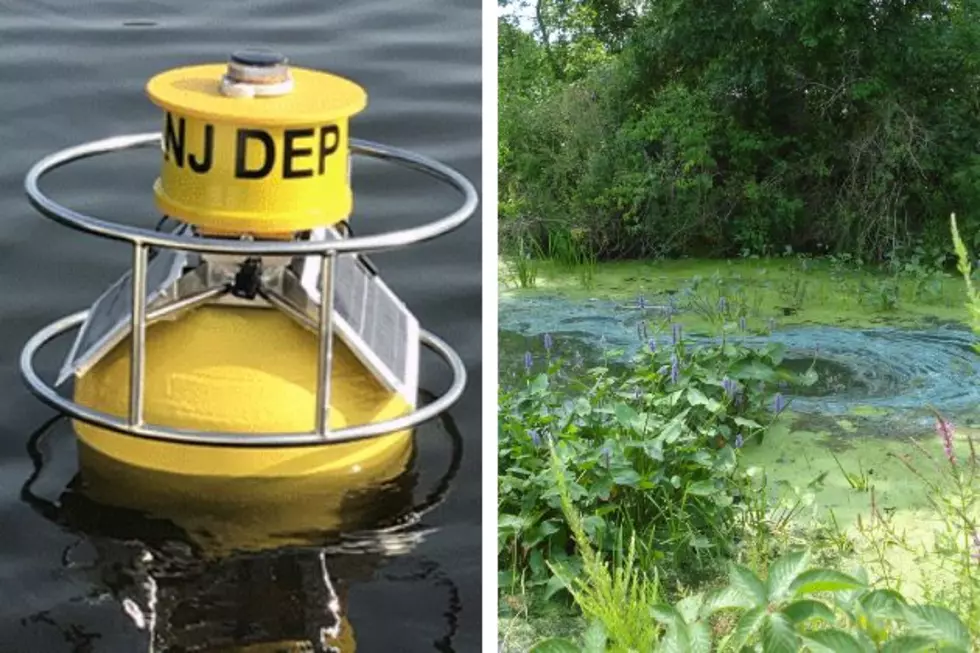
What the fluke: DEP chief, fishing advocates protest summer flounder limit plans
When the Atlantic States Marine Fisheries Commission (ASMFC) conducts hearings this week about its proposed summer flounder quota revisions, it can expect an earful from fishing advocates from New Jersey and elsewhere, as well as state Department of Environmental Protection (DEP) Commissioner Bob Martin.
Martin, shore Representative Frank Pallone (D-6), and Monmouth County Assemblyman David Rible (R-30) joined an estimated 200 fishing enthusiasts and fishing-related business operators Friday at Fisherman's Supply Company in Point Pleasant Beach, all united in concerns of the impact of new restrictions on New Jersey's marine economy and its status as an annual magnet for summer flounder enthusiasts.
ASMFC and the Mid-Atlantic Fishery Management Council (MAFMC) are considering several options, none of which curry favor with opponents including the Recreational Fishing Alliance (RFA), Jersey Coast Anglers Association, the New Jersey Federation of Sportsmen's Clubs, United Boatmen and the Save the Summer Flounder Fishery Fund.
Among the possibilities are a reduction in the number of fish allowed to be caught and kept daily; a reduction in the length of the season; and an increase in the minimum length of fish allowed for catching to 19 inches. In New Jersey, the allowable minimum lengths are 18 inches in the ocean, 17 inches in Delaware Bay, with a maximum allowable keep of five daily..
All of these approaches, in Martin's view, would eviscerate New Jersey's fishing economy, and the 20,000-plus jobs at its core are only the beginning.
"This tends to be the number-one fish that draws people to New Jersey, onto party boats and charter boats," Martin said. "Bait and tackle shops are driven by this...Remember, it's not just the boats, and the fishing community itself. You talk about restaurants, you talk about hotels, you talk about bars, people going out at the Jersey Shore."
"The overall quota, the number of fish, is one variable. The other one, to control that, is the size of the fish that you bring in. The other is the number of days you can go out fishing."
The overarching factor for New Jersey, Martin says, is the size of the catch.
"That 18-inch fish is already tough to catch," he said, owing to the breed's migration patterns and physical needs for survival. "Virtually all the proposals are talking about a 19-inch fish. It's almost impossible to catch. People going out fishing may catch fluke, but they're going to throw them back."
The driving factor in the annual revisions is the federal Magnuson-Stevens Act, which Martin considers unwieldy and in need of a serious review.
"We've tried to stay within the law," he said. "We've tried to play by the rules. After a while, enough's enough. We need to start pushing back, because it will drive our industry completely into the ground."
Moreover, Martin questions the yardsticks by which the revisions are measured.
"We don't agree with the data they're capturing on an individual-year basis," Martin said. "The last stock assessment data was in 2013. It's now old. They're updating it every year, with what I would call anecdotal and partial data, and they're changing quotas based on that."
Martin adds that the qualms are by no means limited to anglers and officials in the Garden State. He's confident that other states will be well-represented at the hearings.
"I've talked to all my counterparts, all the commissioners and secretaries on the Atlantic coast that will have a vote," he said. "We're trying to find a solution that is best for everyone, and that is fair to the State of New Jersey."
Martin says the system is "...broken. Completely broken at the end of the day, and it's time to re-think how we handle managing our oceans."
More From 92.7 WOBM









